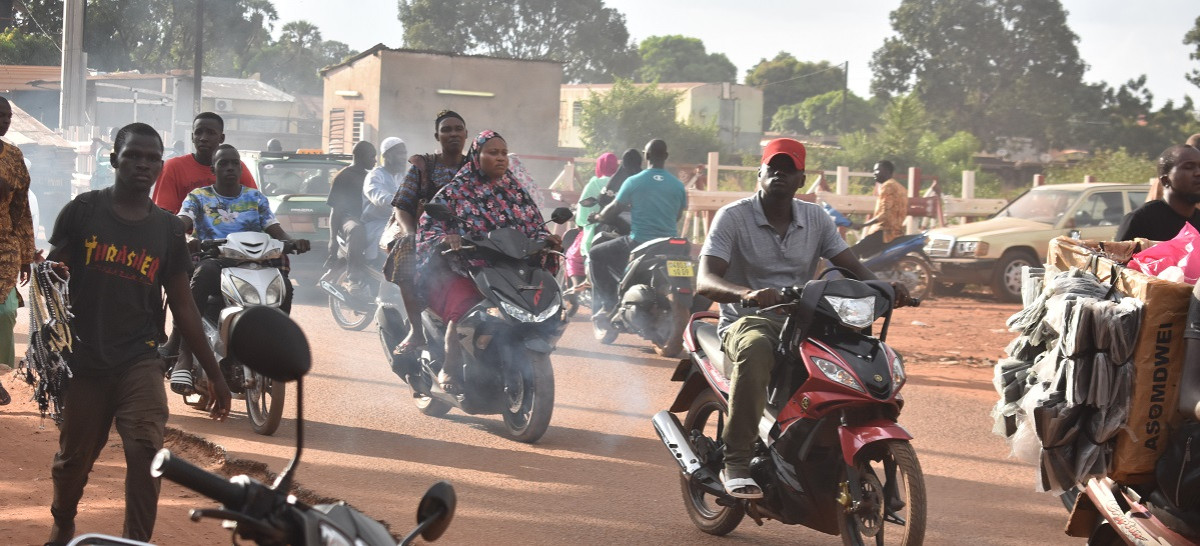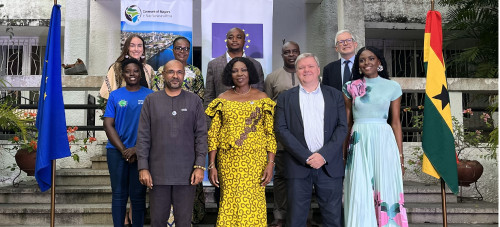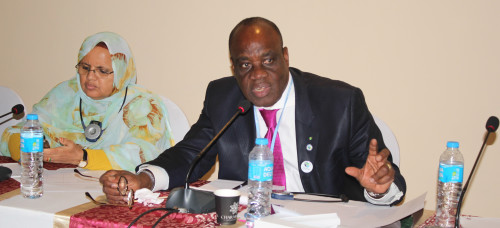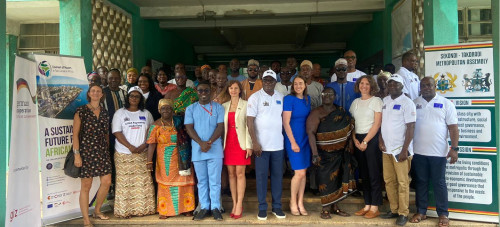African cities explore how to unlock finance for SEACAP implementation to accelerate climate action
Published: 10 Aug 2022
Climate Finance

Developing a Sustainable Energy Access and Climate Action Plan (SEACAP) is a critical step on the journey to unlocking climate finance and accelerating climate action. However, recent data from the Climate Policy Initiative (CPI) shows it will cost millions to implement climate action plans. Thus, cities need to become innovative to access all the finance they need to implement their projects.
On 19 July 2022, frontrunner African local governments, who have completed their SEACAPs, gathered for a virtual city-to-city exchange to discuss and share insights on steps they can take to unlock climate finance opportunities to accelerate the implementation of their SEACAPs.
According to a recent publication from the CPI, “Climate Finance Needs for African Countries”, implementing Africa's Nationally Determined Contributions (NDCs) will cost over USD 2.8 trillion between 2020 and 2030. The exchange revealed that there are several strategies that African cities can utilise to access finance to implement their SEACAPs.
Mainstreaming SEACAP actions into local development plans to accelerate implementation
Participating cities highlighted that if SEACAP actions are mainstreamed into local development plans, existing resources and budget from within the city can be channelled to finance action implementation. With this in mind, many cities who are at the end of their SEACAP development process are either exploring ways to mainstream their actions into local development plans or have done so already.
In Abuja (Nigeria), a committee under the Department of Environment has been set up to mainstream SEACAP actions into county development plans.
In Kisumu County (Kenya), actions that have been prioritised in the SEACAP are closely based on the actions already included in the County’s existing 5-year developmental plan so the prioritised actions in the SEACAP are well aligned with what is already planned and budgeted for in the county.
Nakuru County (Kenya) has included all actions included from the SEACAP into the County Integrated Development Plan (CIDP) following its recent update to ensure that resources can be allocated to implement the SEACAP in the county.
“During the SEACAP process we were able to mainstream all climate actions within the sectors into CIDP which is a 5-year plan for counties that acts as a roadmap towards development plans and programmes they want to action in five years,” said Grace Karanja, Director of Environment at Nakuru County.
Explore external avenues of finance to advance action implementation
While mainstreaming SEACAP actions into local development plans is one way to unlock finance at the local level, city participants advised that sometimes, even if all actions are included in these plans, finance will either flow very slowly, or the full amount of budget needed for implementation is not channelled for SEACAP action implementation due to competing priorities within a city. In such cases, cities will still need to explore external funding sources.
“Having the action plans captured in the CIDP does not guarantee that they’ll be funded from government budget. The most effective way is to seek external funding,” said James Nyagol, who is a Climate Change Officer at Kisumu County.
To get around this, a few of the cities are planning on seeking funds from the likes of the Green Climate Fund (GCF), National Adaptation Plan (NAP) fund and the World Bank, to name a few.
The Central African Republic has set up a national fund to finance local climate actions and the city of Bangui plans to apply to this fund to implement their SEACAP actions. “The national fund for the fight against climate change is supposed to support all actions, in each sectoral department. The SEACAP drawn up by the city of Bangui is integrated into local plans to raise funds [using this instrument],” said Dieudonné Ayengandom, an official from the city of Bangui.
Bobo-Dioulasso (Burkina-Faso) is also seeking finances outside of local government funding sources and is currently packaging its SEACAP actions to make them attractive to international funding mechanisms. The city further advised that potential financiers might have specific requirements for funding projects, and if a city keeps a project sheet at hand, it can easily be adapted to fit these requirements once discussed with a financial partner.
---------
As a major catalyst for local climate action in the region, the Covenant of Mayors in Sub-Saharan Africa (CoM SSA) supports local governments with developing their SEACAPs to move from climate planning to implementation and build cities that are resilient to current and future climate threats. The CoM SSA Climate Finance Course has been recently launched, seeking to build the capacity of CoM SSA signatory cities and subnational governments to understand and access finance that is relevant for their climate actions.
City-to-city exchanges are a core component of the CoM SSA, a European initiative co-funded by the European Union (EU), the German Federal Ministry for Economic Cooperation and Development (BMZ), and the Spanish Agency for International Development Cooperation (AECID). They encourage collaboration between signatories on climate action and sustainable energy access by promoting dialogue and facilitating sustainable cooperation.





